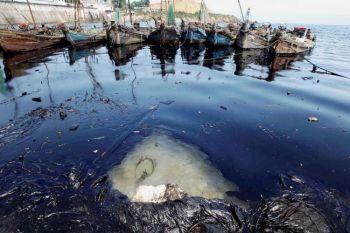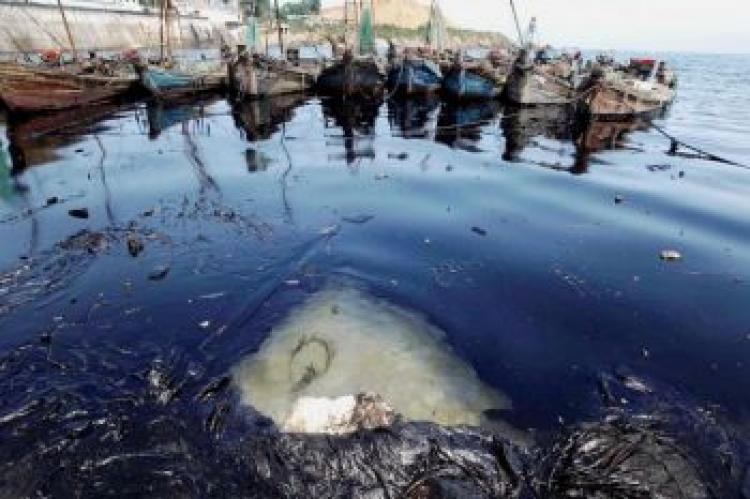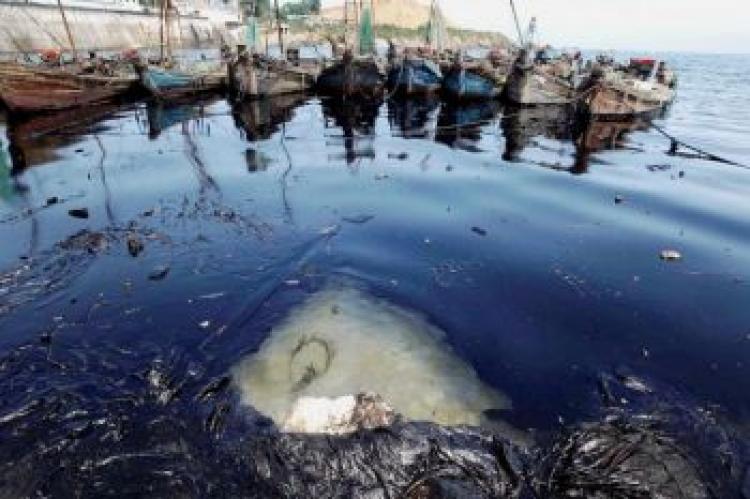Cleaning Up Oil in Dalian a Slow Process
After a pipeline explosion that led to at least 1,500 tons of crude oil gushing into the sea off the coast of China’s Dalian City last week.

A boat and debris floating in an oil slick in the Yellow Sea, after a huge spill following the pipeline fire at the port in Dalian, in Liaoning Province, China. AFP/AFP/Getty Images
|Updated:





